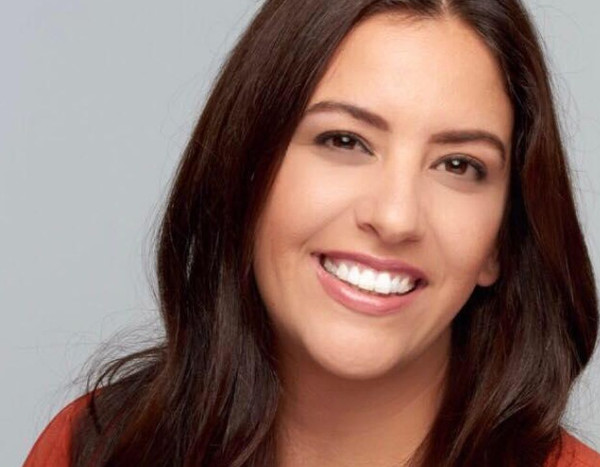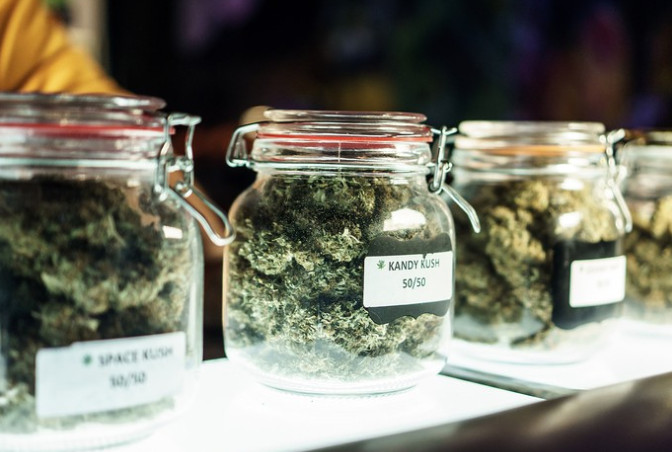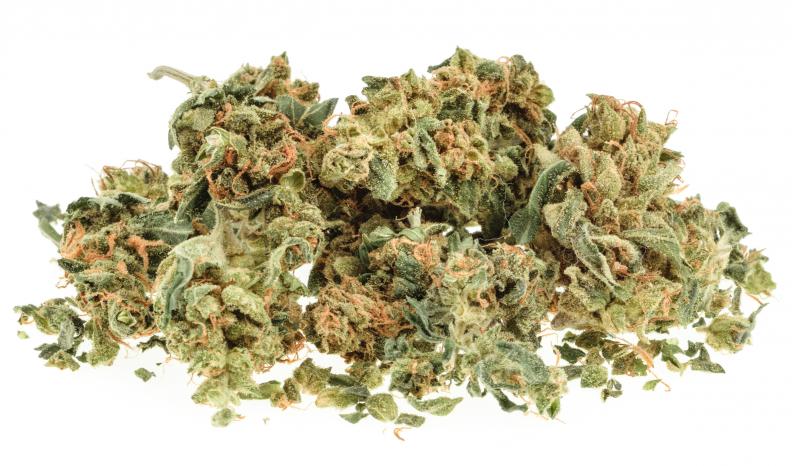Growing up in a tight-knit community in West Texas, Jennifer Lujan’s conservative parents had their daughter’s future all mapped out. She would forgo college, marry a man with “good benefits” and have babies like the rest of the women she knew. Her family had lived in El Paso for generations, when Texas was still part of Mexico, and for them, this was the way it was.
But from a young age Lujan, who remembers watching her father Carlos dress for work in his El Paso Electric Company uniform every day, had other plans. She had dreams of studying on a university campus.
“I knew that I was going to follow a different path. I just didn’t know how to go about it. And there weren’t many people in my life that have gone down that path,” Lujan, who today serves as Director of Social Impact for the cannabis software company Eaze, recalls, “I didn’t really know many people who had left El Paso. And so it was a very scary thought for me.”
But with the encouragement of a non-profit called the National Hispanic Institute, Lujan learned higher education was in her reach and worked hard on her applications even though her parents were skeptical. When she got into Texas State University and broke the news to her mom and dad that she wanted to go and had even secured financial aid, they were less than thrilled. They worried about her leaving home.
Making the difficult choice to defy her family and move eight hours away for school became a formative experience in ways she never expected. The decision set her on a path to study communications and political science and later, earn post-graduate certificates from Harvard and UC Berkeley. At the same time, leaving the comfort and familiarity of her community, was the first time she ever felt alone in her identity.
“When I was in El Paso, being an Hispanic, I was in the majority. But then I was going to a school where I, for the first time, felt like a minority,” she says of this turning point that inspired her to become politically active and to find her voice as an advocate.
It was during those years that Lujan told me she witnessed bias against Hispanics for the very first time. She vividly remembers the shock and hurt she felt one night at the restaurant where she waitressed part-time to earn money for school when she overheard other servers making disparaging comments about brown-skinned customers. The stinging incident and others she faced during that time spurred a deep passion for busting stereotypes and helping others.
“I was very idealistic and wanted to change the world and wanted to just do good things,” she reflects on her younger self.
It’s been more than a decade since then and Lujan has made a home in the world of legalized marijuana where spreading social good is her full-time job. She oversees philanthropic initiatives and social justice advocacy for Eaze, the software powered on-demand pot delivery service that connects consumers to licensed marijuana retailers with the swipe of a finger. Lujan had already gotten involved in the legalization movement in California while she was running charitable programs at the ride-sharing giant Lyft. After visiting veterans suffering from a host of ailments including chronic pain, at a San Francisco hospital in late 2015, she was moved to start her own non-profit to help low income consumers access cannabis called Weed for Good.
Today, the programs Lujan leads at Eaze run the gamut from economic empowerment for racially diverse communities harmed by drug policies of the past; helping veterans obtain cannabis through the non-profit, Operation Evac, and lobbying for compassionate care policies for patients to access medical marijuana; to funding research and education including the work of Dr. Sue Sisley of Scottsdale Medical Center in Arizona, where Sisley is running the first FDA-approved clinical trial studying the efficacy of smoked cannabis on post-traumatic stress disorder in veterans.
Across the marijuana industry, Eaze is not alone in its commitment to helping the communities it serves. According to Chris Walsh, VP and founding editor of Marijuana Business Daily, the marijuana movement was rooted in social responsibility from its earliest days. With the evolution of the cannabis sector in the U.S. and the legitimate businesses that have quickly emerged in recent years, Walsh has observed more companies formalizing their corporate social responsibility (CSR) initiatives, including creating positions to oversee their efforts.
“The interesting thing is the industry started around medical cannabis and it made a lot of sense that entrepreneurs would engage in corporate social responsibility, as it relates to helping their customer base, which was patients. So, you have a lot of focus in those early days on people with medical conditions that needed to use cannabis for relief. Now, I think where you have a bigger recreational marijuana industry where it’s not necessarily about the medical side, it’s interesting to see that some companies are still really championing this idea,” he said in a telephone interview.
For Lujan, redressing the injustices of the War on Drugs, which disproportionately impacts people of color through marijuana arrests and incarceration, has been especially powerful to her. Eaze, based in San Francisco, is deeply involved across the Bay Bridge in Oakland helping local entrepreneurs develop skills and gain access to the new business opportunities. The company pledged $1 million in January 2018 toward social equity initiatives and partnered with The Hood Incubator, the local nonprofit that offers training and support to startups run by Black and Brown business founders. Lujan also oversees expungement clinics which help people jailed for marijuana offenses learn how to clear their records.
Along the way, she’s stayed close with her family despite their disagreements so long ago about her future. She was careful when decided to announce her involvement with marijuana and made a point to tell them in person. She wasn’t sure how they would react. At first, there was silence and then a surprise: They had been following the news about marijuana.
“Okay, mi hija (my daughter), we know. We see what’s happening in Denver, and it looks like it’s a good thing,” she recalls her mom and dad saying and feeling a weight had lifted.
Now Lujan says her mom Linda messages her all the time to get advice for her friends who have aches and pains. Her brother pings her with questions about CBD. And when her father was recovering from prostate cancer surgery, he experimented with cannabis to ease pain and found relief.
“I was amazed of how well it worked. I didn’t have to use any of my pain meds,” Carlos Lujan explains, underscoring how much he admires his daughter’s career, “We are very proud to see how she has followed her passions, overcome obstacles and taken risks. The work she is doing is important and will largely impact how we look at alternative medicine.”
Credit: www.forbes.com





